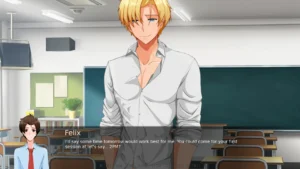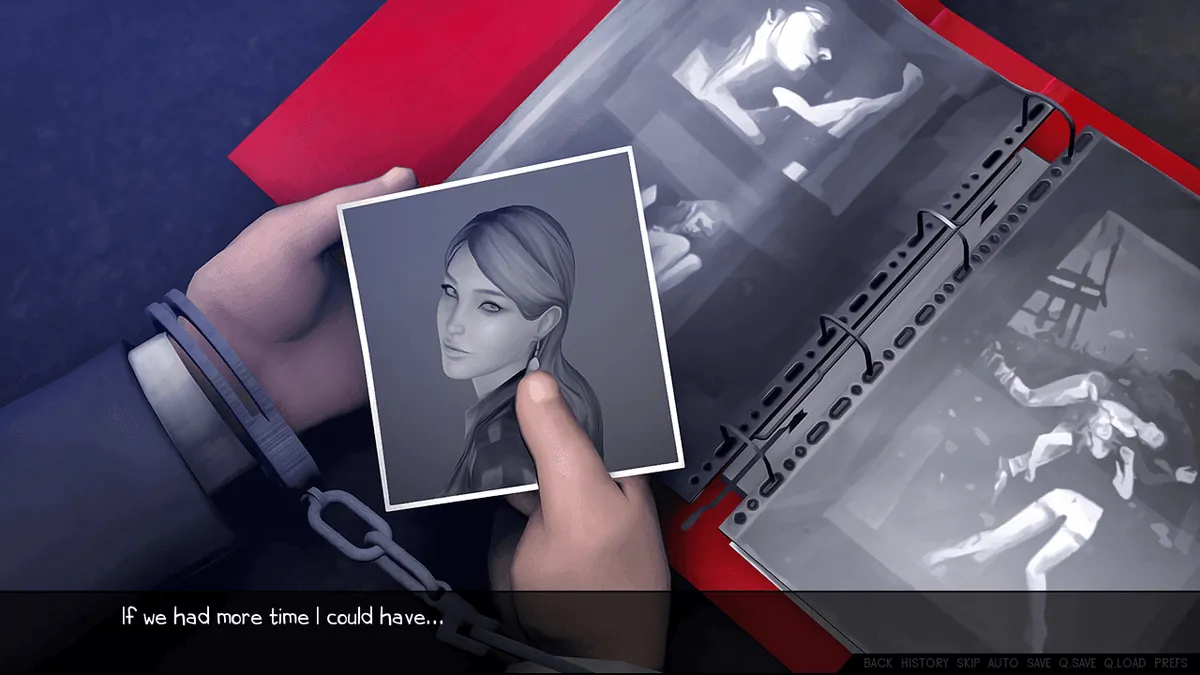
Turning the Page
Play Turning the Page
Turning the Page review
Explore the Unique Features and Gameplay of Turning the Page
Turning the Page is a distinctive interactive experience that blends storytelling with engaging gameplay mechanics. This article dives deep into what makes Turning the Page stand out, from its narrative style to its unique player interactions. Whether you’re curious about the game’s structure or want practical tips to enhance your experience, this guide covers everything you need to know about Turning the Page.
Exploring Turning the Page: Gameplay and Features
Ever found yourself playing an interactive story game and thinking, “Okay, but what if I could actually do that?” 🤔 You make a choice, but it feels like you’re just picking from a pre-written menu, and the story railroads you back to the main plot anyway. I’ve been there, and it’s why Turning the Page felt like such a breath of fresh air. It’s not just about choosing dialogue options; it’s about living inside the narrative. The Turning the Page gameplay is built on a simple yet profound promise: your decisions don’t just nudge the story—they rewrite it. ✍️
This chapter is your deep dive into what makes this experience tick. We’ll explore the unique features Turning the Page offers, break down its game mechanics Turning the Page relies on, and show you exactly how to play Turning the Page to get the most out of your adventure. Get ready to see how your player choices impact everything from character relationships to the very world around you.
What Makes Turning the Page Unique?
Most games in this genre give you the illusion of choice. Turning the Page hands you the pen. 🖊️ The core differentiator is its narrative style Turning the Page employs, which I can only describe as a “living manuscript.” Instead of branching paths that eventually merge, your actions create permanent ink stains on the story’s parchment. I remember making an off-hand, seemingly inconsequential decision to trust a minor character with a secret early on. I didn’t think much of it until hours later, when that character used that information to completely derail the main villain’s plan—a plot twist I’ve never seen in any other playthrough or online guide!
This level of depth is achieved through a complex web of cause and effect that forms the backbone of its interactive story game features. The game tracks your relationships, your moral compass, and even your habits. Are you generous? Do you hold grudges? The world remembers and reacts accordingly.
To really visualize how it stands out, let’s compare it to a more standard title in the genre:
| Feature | Typical Interactive Story Game | Turning the Page |
|---|---|---|
| Choice Consequence | Often short-term, affects immediate dialogue or a single scene. | Long-term, cascading effects that can alter character arcs and late-game story events. |
| World State | Generally static; the world exists independently of player action. | Dynamic; locations, factions, and available quests change based on your decisions. |
| Replayability | Limited, to see a few major ending variations. | Extremely high, with vastly different narratives emerging from subtle early choices. |
| Character Relationships | Measured on a simple “like/dislike” meter. | Complex, multi-faceted relationships based on trust, respect, fear, and past actions. |
This commitment to a truly reactive world is what sets it apart. It’s not just a game you play; it’s a story you author. 📖
Core Gameplay Mechanics Explained
So, how does it all work? The Turning the Page gameplay loop is elegant in its design. You spend your time exploring beautifully rendered scenes, engaging in conversations, and making those all-important choices. But the magic is in the details.
-
The Momentum System: This is a brilliant game mechanics Turning the Page uses instead of a traditional morality system. Your choices build “Momentum” in various directions—like Justice, Freedom, or Order. It’s not about being good or evil; it’s about what kind of legacy you’re building. A high Justice Momentum might make lawful characters seek you out, while a high Freedom Momentum could open up shady underworld contacts. ⚖️
-
The Ripple Menu: During conversations, you’re not just picking what to say. A small icon often appears next to certain options, indicating a “ripple” choice. This is your signal that this decision will have lasting, significant consequences. It creates this wonderful tension—do you say what you think is best, or what feels true to your character, knowing it might close doors later?
-
Progression Through Action: You don’t gain “experience points” for completing tasks. Instead, you grow by overcoming challenges specific to your choices. Successfully negotiating a peace treaty might permanently increase your persuasion effectiveness in political matters. It makes your character’s development feel directly tied to your story, not an arbitrary number. 📈
Understanding these mechanics is key to knowing how to play Turning the Page. Don’t try to game the system to find a “best” outcome. The best outcome is the one you create. Embrace the Momentum you’re building and see where it takes you!
How Player Choices Shape the Experience
This is where Turning the Page truly shines. The player choices impact is staggering and deeply personal. I want to share an anecdote that blew my mind. In my first playthrough, I was a pragmatic diplomat, always seeking the peaceful solution. I managed to avert a major war, and I felt like a hero. 🦸♂️
Curious, I started a second game, role-playing as a ruthless opportunist. I betrayed the same allies I’d previously saved, seizing power for myself. Not only did the story completely change, but the game introduced new chapters I never knew existed—whole story arcs about managing the unrest of my tyrannical rule. The game didn’t just have different endings; it had entirely different middles based on my actions.
This is the heart of the experience:
* Character Fate: Key characters can live, die, leave, or become your greatest enemy based on your treatment of them.
* Location Access: Certain areas or entire cities can become open, closed, or hostile to you.
* Story Resolution: There are multiple, completely valid ways to resolve the central conflict, each with its own set of consequences for the world.
My biggest piece of advice? Play blindly first. Resist the urge to look up a guide. The magic of Turning the Page gameplay is in the discovery and the ownership of your unique story. Your “mistakes” aren’t failures; they’re just a different page in your book. Your second playthrough will be a completely different journey, and that’s the greatest testament to its design. The player choices impact is not a marketing slogan—it’s the entire soul of the game. ❤️
Turning the Page offers a compelling blend of narrative depth and player-driven choices that create a memorable interactive experience. Its unique gameplay mechanics and engaging storytelling invite players to explore different paths and outcomes, making each playthrough fresh and exciting. Whether you’re new to this type of game or a seasoned player, Turning the Page provides an enjoyable and immersive journey. Dive in and discover how your decisions can truly shape the story’s direction.

















